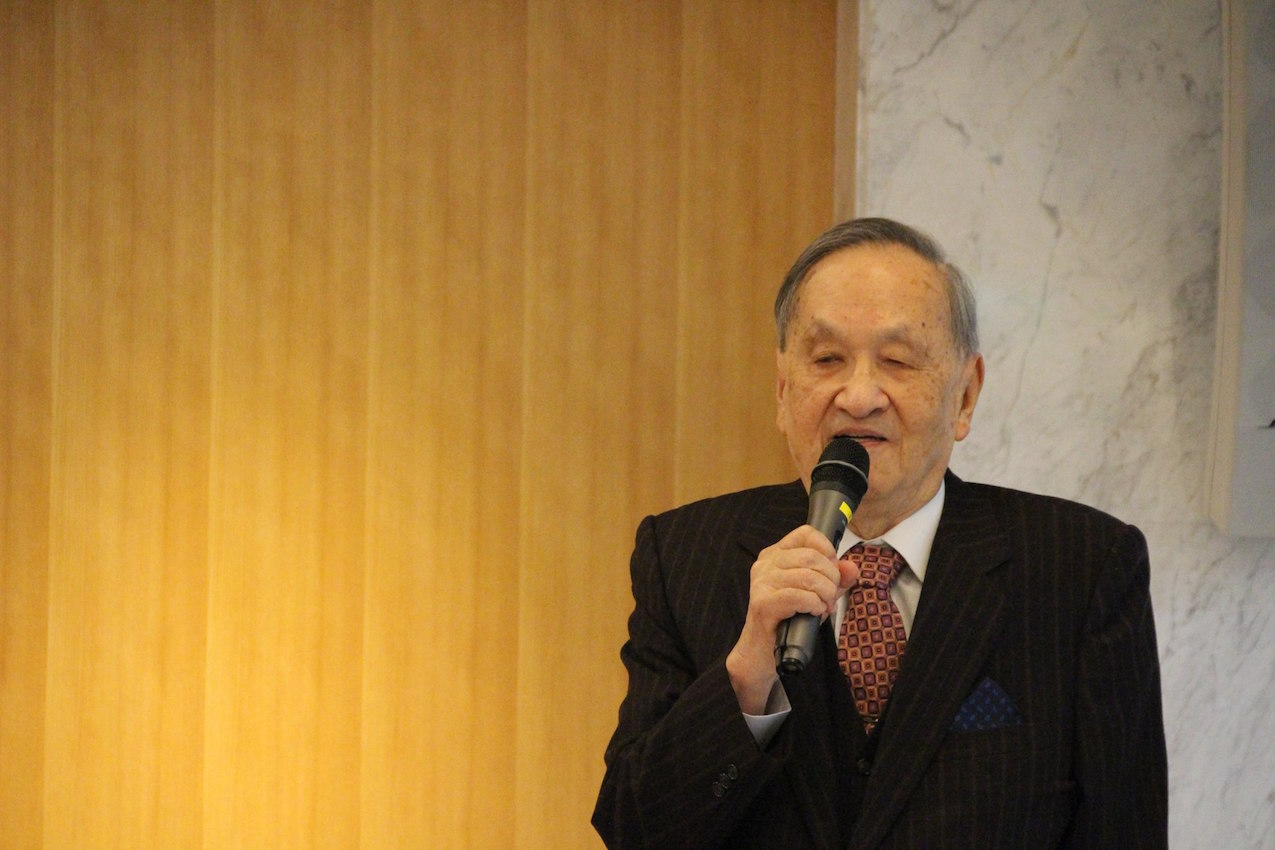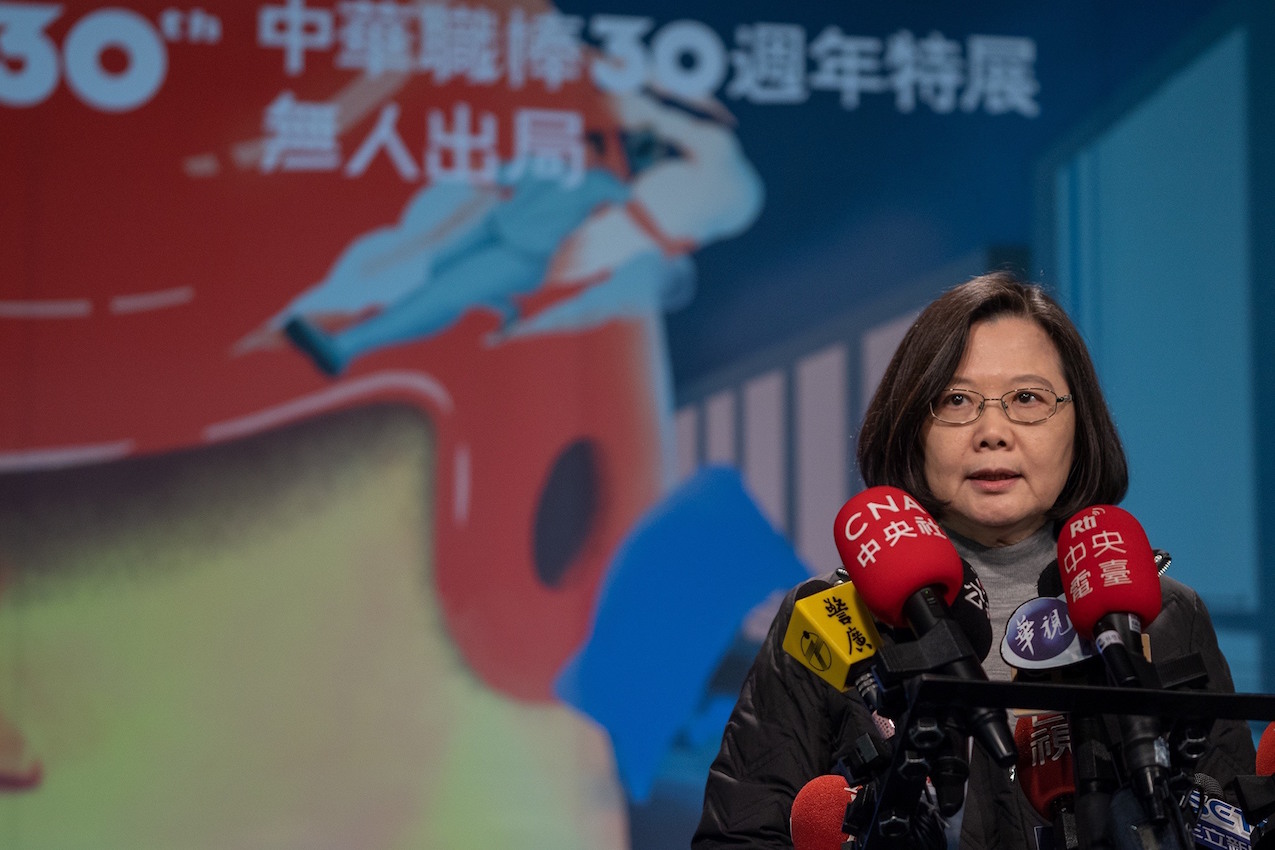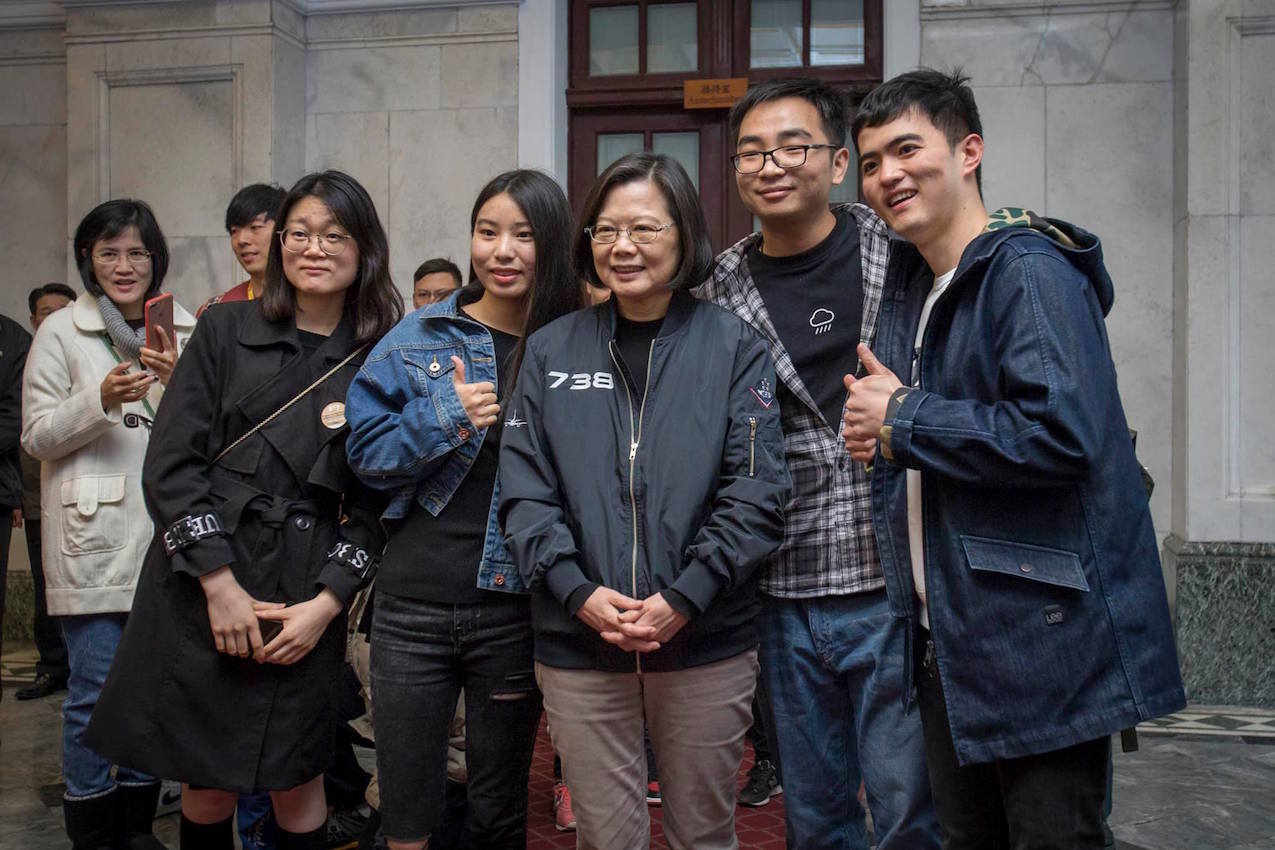by Brian Hioe
語言:
English
Photo Credit: Tsai Ing-wen/Facebook
CALLS ARE ON the rise within the DPP to replace current president Tsai Ing-wen as the DPP’s candidate in 2020 presidential elections. Namely, pan-Green traditionalists, generally skewing towards the deep Green end of the political spectrum, are unhappy with Tsai’s performance as president to date, and call on Tsai to not run as a way of taking responsibility for the DPP’s losses in nine-in-one elections in November. Some even call on Tsai to resign from the presidency altogether, though such calls are rare. However, this call to not run in 2020 largely takes the form of an open letter urging Tsai not to run by senior pro-independence figures such as former DPP chair Peng Ming-min, former Academia Sinica president Lee Yuan-tseh, Reverend Kao Chun-ming, and Presidential Office adviser Wu Li-pei.
 Peng Ming-min. Photo credit: 財團法人彭明敏文教基金會/Facebook
Peng Ming-min. Photo credit: 財團法人彭明敏文教基金會/Facebook
Pan-Green traditionalists are likely primarily unhappy with Tsai for failing to take a stronger stance in support of Taiwanese independence and blame Tsai for the DPP’s defeats in nine-in-on elections in November. For example, the writers of the open letter are members of the Formosa Alliance that pushed for a referendum on what name Taiwan should participate in the 2020 Tokyo Olympics under. This referendum was intended to push for a more general referendum on Taiwanese independence down the line and its organizers see the failure of the referendum as in part due to Tsai’s failure to throw her support behind it. The referendum was on whether Taiwan should participate in the 2020 Tokyo Olympics as “Chinese Taipei” or whether it should seek participation as “Taiwan.”
This may be a questionable view, seeing as the referendum on the 2020 Tokyo Olympics was the most popular of the ten referendum proposals voted on in November alongside voting for local elections, gathering more than one million signatures. Yet in the week before voting took place, concerns emerged that if Taiwan did not participate as “Chinese Taipei” in the Olympics, it could end up being blocked from them altogether. At the same time, it must be kept in mind that the defeat of the referendum was not by wide margins, losing by 4,700,000 to 5,700,000.
Indeed, unsurprisingly, one of Tsai’s possible challengers for the DPP’s presidential nomination in 2020 is Kuo Pei-hung of the Formosa Alliance, also the chair of Formosa Television. Some perceived Kuo’s organization of the Formosa Alliance as intended to build for an eventual challenge to Tsai. Kuo would, of course, be aided in his challenge to Tsai by the media network he has behind him.
Yet while the defeat of the 2020 Tokyo Olympics referendum no doubt stings greatly, members of the pan-Green camp are also more generally upset with Tsai’s frequent policy flip-flops and failure to commit to policy stances on a number of issues ranging from gay marriage, labor reforms, or what the DPP’s stance on political independents or third parties should be. Tsai is seen as aggravating both camps on a number of issues through her flip-flopping and costing the DPP crucial votes in that way. Examples include offending both organized labor groups and corporate interests by flip-flopping numerous times on whether it would follow through with planned changes to the Labor Standards Act and offending both church groups and members of the LGBTQ community and their allies by flip-flopping on whether it would push for gay marriage or not. As such, Tsai has become labeled as indecisive.
 Taipei mayor Ko Wen-je during reelection campaigning in November. Photo credit: Ko wen-je/Facebook
Taipei mayor Ko Wen-je during reelection campaigning in November. Photo credit: Ko wen-je/Facebook
Tsai is also seen as having tactically made a mistake regarding Taipei Ko Wen-je. Although pan-Green traditionalists dislike Ko, seeing him as having drifted towards the pan-Blue camp and a pro-China stance, pan-Green traditionalists also see it as a failing of Tsai’s that a split vote between Ko and DPP mayoral candidate Pasuya Yao nearly led to a KMT victory in Taipei. More broadly, Tsai is seen as having allowed the KMT to win widespread victories in 2018 elections because she did not strongly campaign for DPP candidates, and instead mainly hung back.
It is such then, that despite the advantage enjoyed by incumbents and the risk that switching to a different candidate would entail, pan-Green traditionalists call for the DPP to change horses for 2020 elections. For the most part, Pan-Green traditionalists seem to be aligning around calls to have current premier William Lai run for president instead.
Lai may be open to this. Though Lai originally stated that he planned to resign as premier in order to take responsibility for the DPP’s losses in nine-in-one elections, much as Tsai resigned as chair of the DPP in order to do so, Tsai refused to accept his resignation and Lai agreed to stay on. This offer to resign may have been a move indicating that Lai was open to separating from the Tsai political camp and to test the waters of his popularity, gearing up for an eventual presidential run. Lai would likely be backed by many members of the New Tide faction of the DPP if he ran.
This raises questions of whether the powerful New Tide faction of the DPP will eventually openly turn on Tsai, although the New Tide currently enjoys a dominant role in her administration. Nevertheless, given the New Tide faction’s prominent current role in the Tsai administration, the defeats of the DPP in nine-in-one elections have also been viewed as a blow to the New Tide.
 President Tsai Ing-wen. Photo credit: Tsai Ing-wen/Facebook
President Tsai Ing-wen. Photo credit: Tsai Ing-wen/Facebook
At the same time, a number of questions remain unclear. While many pan-Green traditionalists call for Tsai’s replacement, this also evidences a generational divide. Third Force parties and pro-Taiwan youth activists, who are younger in basis but also skew towards the deep Green end of the political spectrum, do not seem to be among those calling for Tsai to step down. Indeed, some younger DPP and Third Force politicians such as city councilors Jiho Chang, Huang Shou-da, and Wu Pei-yi of the DPP, and Third Force politicians Miao Poya of the SDP recently issued a statement in support of Tsai, although this was phrased as responding to Xi Jinping’s January 2nd comments on Taiwan. The Overseas Taiwanese for Democracy group, which primarily consists of overseas Taiwanese students in the United States, has also issued a statement urging support for Tsai.
There is a notable split between younger deep Greens and older pan-Green traditionalists, with younger deep Greens less emphatic on pushing for outright, immediate Taiwanese independence and more often skewing towards retaining the current status quo but trying to gradually push it in the direction of independence—much as Tsai is currently doing.
Similarly, given the rhetorical emphasis by older pan-Green traditionalist on bold, decisive action and the use of sexist attacks on Tsai because her indecisiveness as a politician is attributed to her being a female politician, many youth activists perceive pan-Green traditionalists as simply being misogynistic—all the more so because Tsai is Taiwan’s first female president.
Along such lines, pan-Green traditionalists divide from younger pro-Taiwan activists on social issues such as gay marriage, seeing as many older, deep Green figures of the DPP are sharply opposed to gay marriage. This is not an absolute, seeing as the Formosa Alliance was supportive of gay marriage, yet social issues are one way in which there are generational divides among the deep Green camp. It is to be noted that, while young voices have proven more supportive of Tsai, Taiwanese independence elder Su Beng is also among those who have also voice support from Tsai, indicating that some older Taiwanese independence activists continue to support Tsai.
 Photo credit: Tsai Ing-wen/Facebook
Photo credit: Tsai Ing-wen/Facebook
As such, one expects such differences within the pan-Green camp to become further accentuated as time goes by and the question of who the DPP runs in 2020 presidential elections becomes more salient. Splits within the pan-Green camp are growing and some fear that these splits will provide the KMT the leverage it needs to retake power in 2020. This is to be seen.

